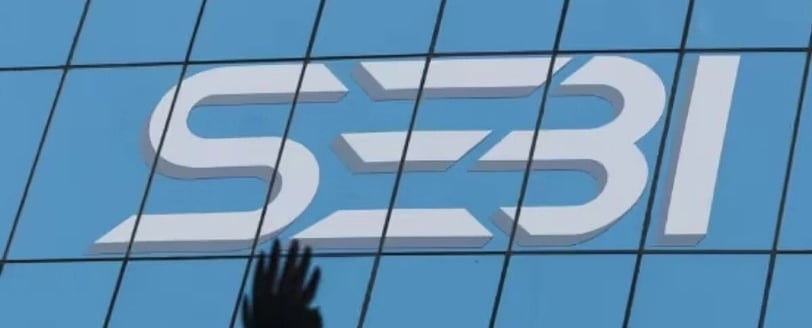Add your promotional text...
SEBI’s Vision for a Modern Securities Market: The Push for Mandatory Dematerialisatio
Synopsis: The Securities and Exchange Board of India (SEBI) is accelerating the transition to a fully dematerialised securities market by proposing mandatory issuance of electronic shares for corporate events like splits, consolidations, and restructuring. This initiative aims to reduce risks associated with physical certificates while streamlining market operations, enhancing transparency, and improving regulatory oversight.
VIEWS ON NEWS
By Monika Agarwal
1/16/20253 min read


Paving the Way for a Digital Securities Market
As part of its mission to modernize India’s capital markets, the Securities and Exchange Board of India (SEBI) has introduced a groundbreaking proposal: the mandatory issuance of shares in dematerialised (demat) form for corporate actions such as share splits, consolidations, and restructuring schemes. This forward-thinking initiative seeks to phase out the reliance on physical share certificates, which are prone to loss, theft, damage, and fraud.
By making dematerialisation a requirement, SEBI is aiming for a more efficient, transparent, and secure securities market that benefits both investors and issuers alike.
Why Dematerialisation Matters
Dematerialisation refers to the process of converting physical share certificates into electronic format, stored in a demat account. The benefits of this transition are far-reaching:
Fraud Prevention:
Demat shares eliminate risks associated with counterfeit and forged certificates, ensuring a secure holding environment for investors.
Operational Efficiency:
Electronic shares enable faster and error-free transfers, reducing delays in corporate actions.
Cost Reduction:
Both companies and investors benefit from lower administrative and legal costs associated with managing physical certificates.
Enhanced Regulatory Oversight:
A digital system provides regulators with better tools to monitor transactions, improving compliance and market integrity.
SEBI’s Proposed Changes
Recognizing that a significant number of investors still rely on physical certificates, SEBI has outlined key measures to facilitate the transition:
Mandatory Demat Issuance:
SEBI proposes amendments to the Listing Obligations and Disclosure Requirements (LODR) Regulations, 2015, making it mandatory for companies to issue shares in demat form during:Share splits or sub-divisions.
Consolidation of share capital.
Corporate restructuring schemes.
Dedicated Demat/Escrow Accounts:
For investors who lack demat accounts, companies will be required to set up separate demat or escrow accounts during corporate actions. This ensures seamless handling of shares while encouraging non-demat account holders to transition to the digital system.Streamlined Signature Verification:
SEBI plans to simplify the process of handling discrepancies in signature verification by removing the need to maintain proof of delivery for notifications. This step aims to reduce procedural bottlenecks and improve efficiency.
Consultation and Feedback
SEBI has issued a consultation paper inviting feedback from stakeholders until February 4, 2025. This collaborative approach ensures that the concerns of investors, companies, and market participants are addressed before implementing the proposed changes.
A Broader Strategy for Modernization
SEBI’s push for dematerialisation aligns with its larger vision to create a modern, efficient, and secure securities market. By eliminating physical certificates entirely, the regulator seeks to:
Strengthen Market Operations: Simplified processes and reduced paperwork enhance overall market functionality.
Boost Investor Confidence: A secure and transparent system protects investors and reduces the risk of fraud.
Enhance Compliance: Digital records ensure easier tracking and enforcement of regulations.
Challenges and the Path Forward
While the benefits of a dematerialised system are undeniable, the transition may face certain challenges:
Investor Awareness:
Many investors, especially in smaller towns and rural areas, may lack awareness or access to demat services. SEBI must prioritize education campaigns to bridge this gap.Technological Adoption:
Companies will need to invest in infrastructure and systems to comply with the new regulations. Financial and technical support may be necessary for smaller entities.Resistance to Change:
Some investors may hesitate to transition from physical certificates due to habit or perceived complexity. Simplified account opening processes and incentives can help mitigate this resistance.
A Vision for the Future
SEBI’s commitment to dematerialisation represents a significant step toward creating a world-class capital market ecosystem in India. By embracing digital transformation, the regulator is paving the way for:
Seamless Transactions: Faster and error-free processes for corporate actions and share transfers.
Global Competitiveness: A modern securities market that attracts both domestic and international investors.
Sustainable Growth: Reduced reliance on physical resources aligns with environmental sustainability goals.
Dematerialisation as a Catalyst for Progress
The mandatory issuance of demat shares for corporate events marks a transformative shift in India’s securities market. By prioritizing security, efficiency, and transparency, SEBI is setting the stage for a robust and future-ready financial ecosystem.
As India moves closer to becoming a global economic powerhouse, initiatives like these will play a crucial role in fostering investor confidence and ensuring the resilience of the country’s capital markets. With public feedback shaping the final implementation, SEBI’s proposal is poised to redefine how securities are managed in India.
